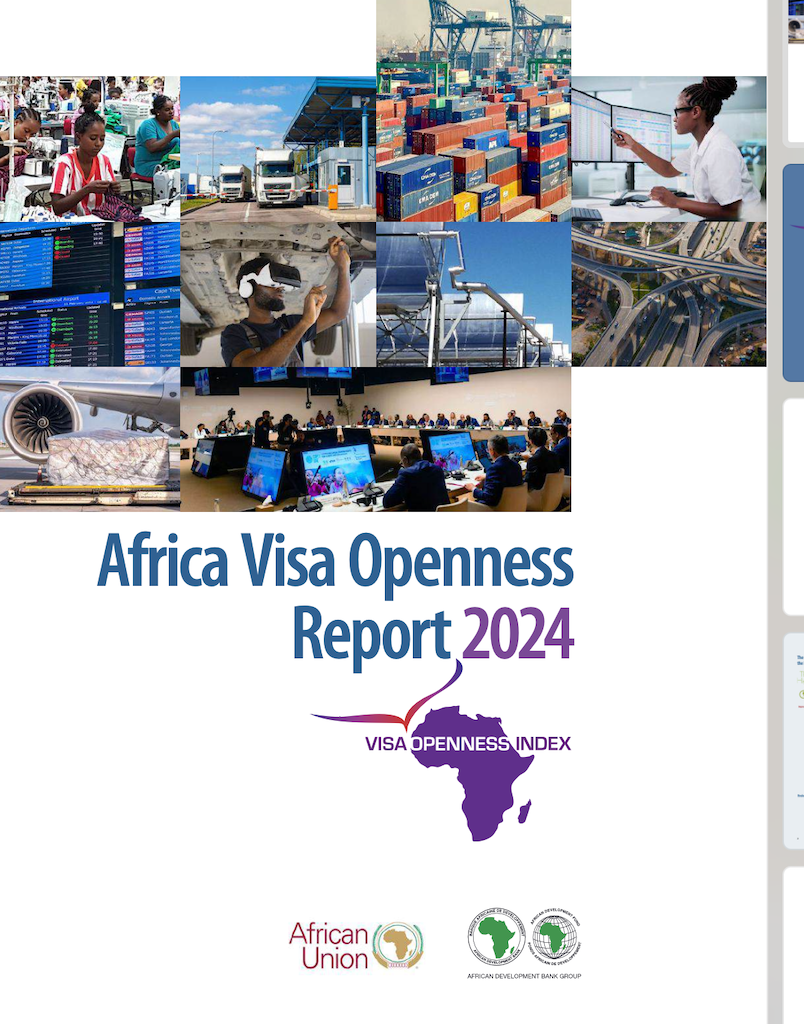The Africa Visa Openness Report 2024, unveiled by the African Development Bank (AfDB) and the African Union Commission (AUC), highlights significant developments in easing the movement of people across the continent. While strides have been made, the report emphasises that visa policies remain a barrier to Africa’s aspirations for regional integration and economic transformation.
Dr. Akinwumi A. Adesina, President of the AfDB, underscored the importance of mobility, stating, “We cannot say we have borderless trade when we put up barriers for people to travel.”
This year’s findings reflect both progress and persistent challenges in visa openness, as nations strive to align policies with the goals of the African Continental Free Trade Area (AfCFTA) and Agenda 2063.
Key Findings: Mixed Progress
The 2024 Africa Visa Openness Index (AVOI) reveals a modest decline in the aggregate score, dropping slightly from 0.485 in 2023 to 0.479. Of the 54 countries assessed:
17 countries improved their scores, reflecting positive reforms. 29 countries maintained their rankings, showing stability but no progress. 8 countries experienced declines, citing political and security concerns as key factors.
Visas are currently needed for 47% of intra-African travel, a modest rise from 2023, while 28% of travel is visa-free. Nonetheless, the continent’s slow transition to digital solutions is demonstrated by the introduction of e-visas and improvements in visa-on-arrival regulations.
Top 10 Performers Leading the Way in Africa’s Visa Openness
The countries of Rwanda, Seychelles, The Gambia, and Benin are leading the charge in Africa’s efforts to open up its visa system, allowing all African visitors to enter without a visa. These countries provide a positive model for embracing regional cohesion. The following countries join them in the top 10: Guinea-Bissau, Cabo Verde, Nigeria, Ghana, Senegal, and Mauritius. The ability of open borders to facilitate connections, collaboration, and opportunity exploration among Africans is exemplified by these nations collectively.
Challenges: Conflict and Digital Inequities
Despite advancements, barriers persist. Conflicts in parts of Africa disrupt mobility and trade, while the introduction of Electronic Travel Authorisations (ETAs) has, in some cases, added bureaucratic hurdles rather than simplifying travel. E-visas, although promising, reveal disparities in implementation, ranging from affordability to technical reliability.
Dr. Joy Kategekwa, Director of the AfDB’s Regional Integration Coordination Office, highlighted the urgency of action: “Africa will not meet its development aspirations in the absence of regimes that promote mobility across the continent.”
Driving Regional Integration
Visa openness is a cornerstone of the AfDB’s new Ten-Year Strategy (2024–2033), which prioritises free movement of people to boost intra-African trade and industrialisation. The strategy complements the AfCFTA’s goals to create the world’s largest single market and enhance economic resilience.
The average AVOI scores of the eight Regional Economic Communities (RECs) in Africa also show differing degrees of development. With the help of the 1979 Protocol on Free Movement, ECOWAS has the highest regional score, while SADC and EAC are still trending upward.
Recommendations: A Call to Action
To achieve a more seamless and integrated continent, the report recommends:
• Accelerating visa-free or visa-on-arrival policies across RECs.
• Standardising e-visa platforms to ensure affordability, security, and efficiency.
• Strengthening advocacy for the African Union’s Protocol on Free Movement of Persons.
As Africa moves towards greater integration, fostering mobility remains critical. By addressing visa-related barriers, the continent can unlock economic opportunities, support cross-border collaboration, and realise the vision of “The Africa We Want.”







